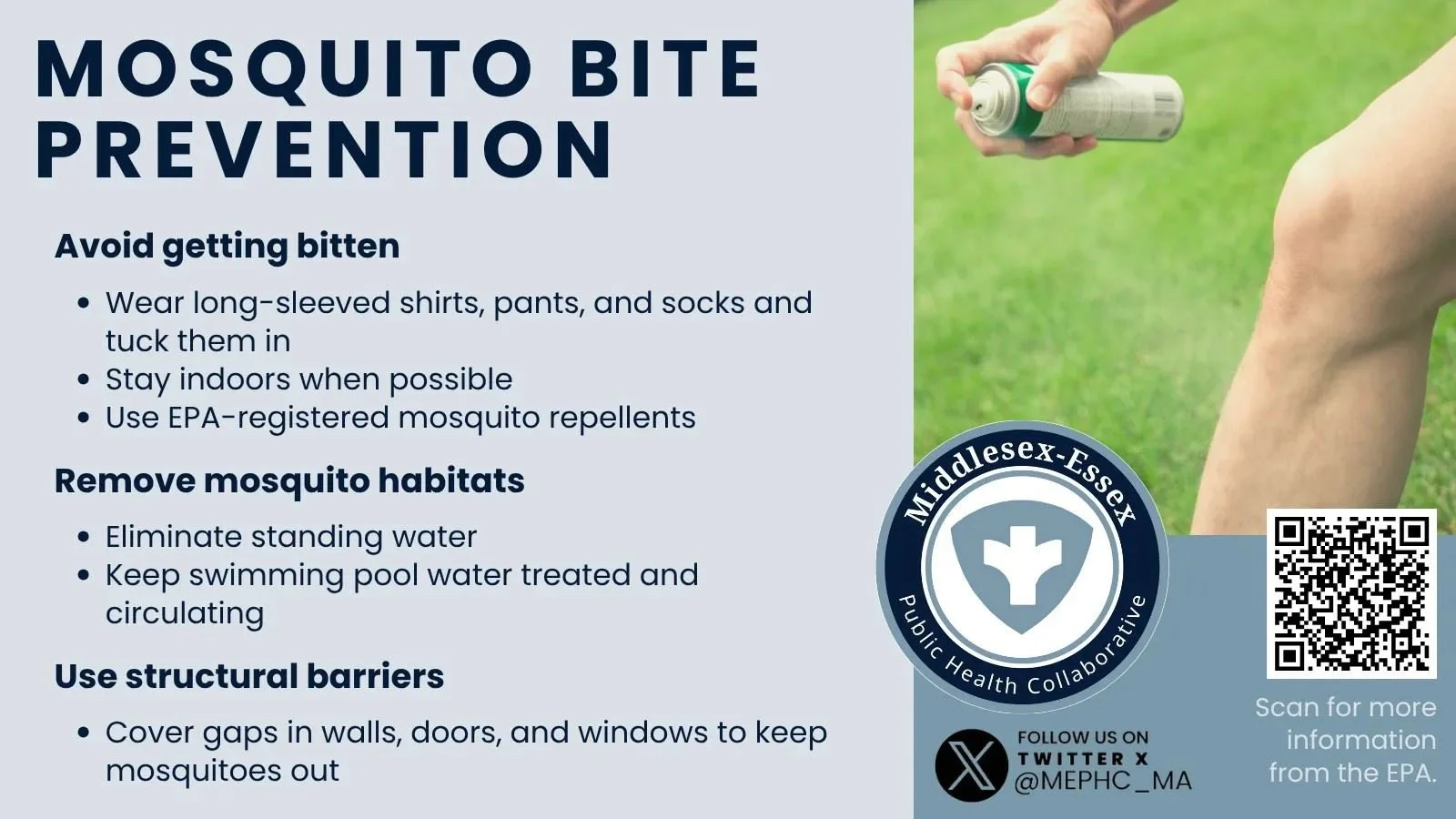Protect yourself this summer: mosquito bite prevention tips from Middlesex-Essex Public Health
(2-minute read)
As summer heats up in Massachusetts, so does mosquito season. With rising concerns about mosquito-borne illnesses such as West Nile Virus and Eastern Equine Encephalitis (EEE), the Middlesex-Essex Public Health Collaborative is reminding residents to take preventative measures to protect themselves and their families.
Here’s how you can reduce your risk of mosquito bites and enjoy a safer, itch-free summer.
Avoid getting bitten
Dress smart: wear long-sleeved shirts, long pants, and socks. Tuck clothing in to prevent mosquitoes from accessing exposed skin.
Stay indoors during peak hours: Mosquitoes are most active at dawn and dusk, so limit your time outside during these hours when possible.
Use repellents: Apply EPA-registered mosquito repellents according to label instructions. Products with DEET, picaridin, or oil of lemon eucalyptus are commonly recommended.
Remove mosquito habitats
Mosquitoes lay their eggs in standing water. You can significantly reduce mosquito populations by:
Eliminating standing water in items like flower pots, buckets, gutters, bird baths, and tires.
Maintaining pools properly. Keep pool water treated and circulating to prevent it from becoming a breeding ground.
Use structural barriers
Seal entry points: close gaps in doors, windows, and walls to prevent mosquitoes from entering your home.
Install or repair screens: make sure all windows and doors have intact screens to keep mosquitoes outside.
Stay informed
The Middlesex-Essex Public Health Collaborative encourages residents to stay alert and proactive. Visit the EPA website for additional guidance and up-to-date information on mosquito control.
Stay connected with the Middlesex-Essex Public Health Collaborative on Twitter/X @MEPHC_MA for the latest alerts and prevention tips throughout the summer.
Don’t let mosquitoes ruin your summer - take simple steps now to stay protected!
Flyer by Middlesex-Essex Public Health Collaborative.
